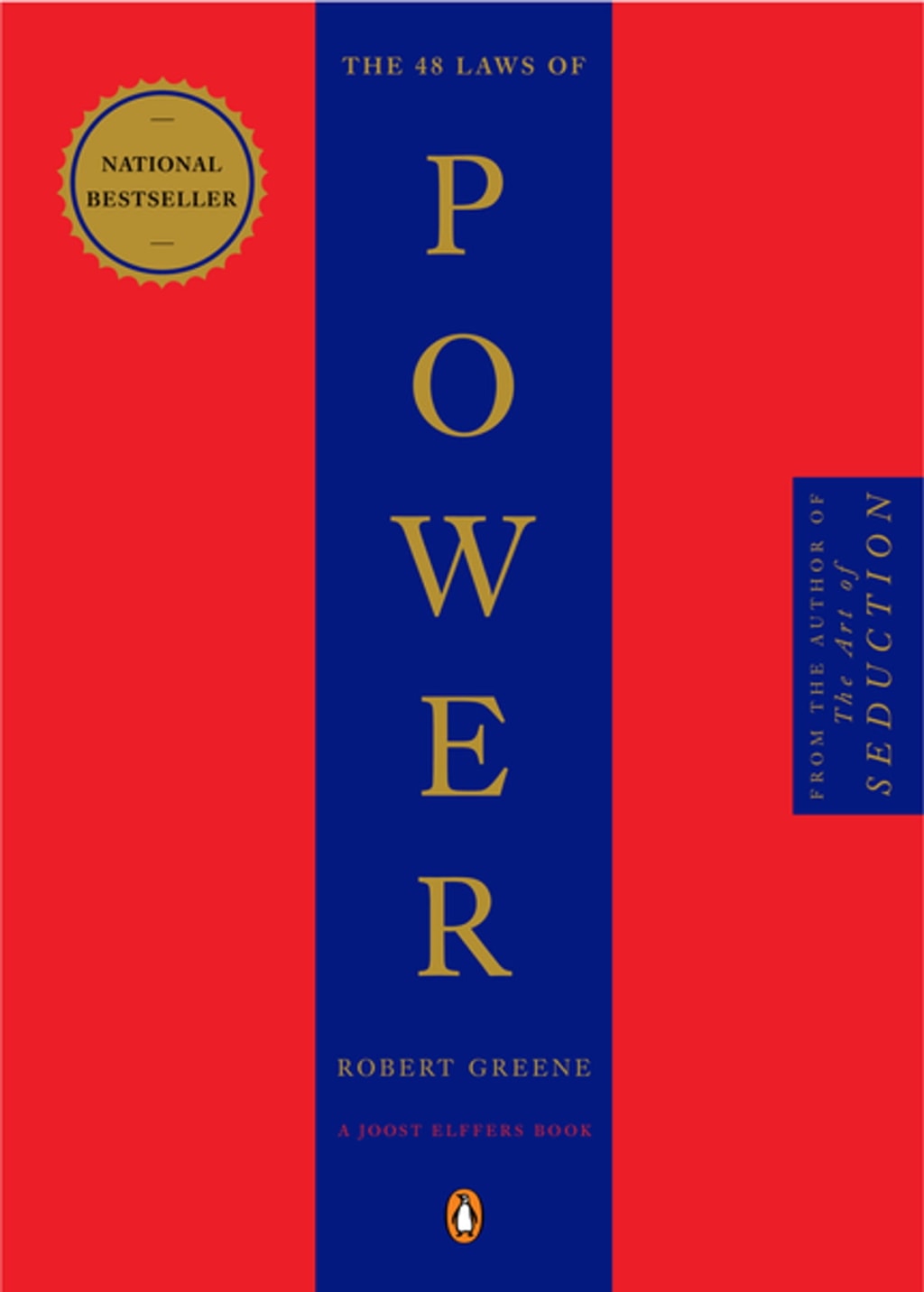The 48 Laws of Power: Timeless Lessons for Navigating the Complexities of Human Interaction
“The 48 Laws of Power” is a bestselling book written by Robert Greene, first published in 1998. It explores the dynamics of power and manipulation, drawing lessons from historical figures and events to offer insights into human behavior and the strategies employed to gain and maintain power. Whether you agree with its principles or not, “The 48 Laws of Power” has become a widely studied and debated work on the topic of power dynamics. In this article, we will delve into the 48 laws presented in the book and explore the lessons they impart for navigating the complexities of human interaction.

Lessons from the 48 Laws of Power: Laws 17 to 28
In Robert Greene’s bestselling book “The 48 Laws of Power,” he delves into the complex dynamics of power and manipulation, drawing lessons from historical figures and events to illustrate the strategies used to gain and maintain power. In this article, we will explore laws 17 to 28, uncovering the insights they offer and how they can be applied to navigate the intricacies of human interaction.
Law 17: Keep Others in Suspended Terror: Cultivate an Air of Unpredictability
Instilling a sense of uncertainty and unpredictability in others can be a powerful tool for maintaining power. By keeping people on edge, unsure of your next move, you create an atmosphere where they are less likely to challenge or oppose you.
Lesson: Cultivate an air of mystery and unpredictability, but use this tactic with caution. While it can help you maintain control, using it excessively can lead to fear and resentment, eroding trust and loyalty.
Law 18: Do Not Build Fortresses to Protect Yourself – Isolation is Dangerous
Isolating yourself from others can make you vulnerable to attacks and manipulation. Building walls to protect yourself may create enemies and reduce your awareness of potential threats.
Lesson: Foster alliances and maintain connections with others. Surround yourself with trusted advisors who can offer diverse perspectives and insights. Collaborative strength can be more powerful than isolation.
Law 19: Know Who You’re Dealing with – Do Not Offend the Wrong Person
Understand the personalities and dispositions of the people you interact with. Offending the wrong person can have severe consequences and may lead to the downfall of your power.
Lesson: Practice empathy and emotional intelligence to gauge the reactions of others. Treat everyone with respect and courtesy, regardless of their status or position.
Law 20: Do Not Commit to Anyone
Avoid committing to one person or cause completely, as this can limit your flexibility and create unnecessary obligations.
Lesson: Keep your options open and be adaptable. While loyalty and commitment have their place, too much devotion can lead to vulnerability and manipulation.
Law 21: Play a Sucker to Catch a Sucker – Seem Dumber than Your Mark
By appearing less intelligent or knowledgeable than your target, you can lull them into a false sense of security, making them more susceptible to manipulation.
Lesson: Be strategic in how you present yourself to others. Gauge their level of intelligence and adapt your approach accordingly. However, be cautious not to undermine your credibility in the long run.
Law 22: Use the Surrender Tactic – Transform Weakness into Power
Strategically surrendering or admitting vulnerability can disarm opponents and allow you to regain control of a situation.
Lesson: Embrace vulnerability when it can work to your advantage. Demonstrate humility and openness when appropriate, but ensure it aligns with your overall strategy.
Law 23: Concentrate Your Forces – Play on People’s Need to Believe to Create a Cult-Like Following
By concentrating your efforts and presenting a compelling narrative, you can create a loyal and devoted following.
Lesson: Understand the power of storytelling and emotional appeal in shaping people’s beliefs and actions. Use this knowledge responsibly and ethically to inspire and unite others.
Law 24: Play the Perfect Courtier
In a court or professional setting, mastering the art of flattery and charm can help you navigate power dynamics and gain influence.
Lesson: Develop excellent interpersonal skills and be attentive to the needs and desires of those in power. Be sincere in your compliments and build genuine connections.
Law 25: Re-Create Yourself
Adapting to changing circumstances and reimagining yourself can keep you relevant and adaptable in a dynamic world.
Lesson: Continuously improve and reinvent yourself to meet new challenges. Embrace personal growth and remain open to learning from others.
Law 26: Keep Your Hands Clean
Avoid direct involvement in controversial or unethical actions that can tarnish your reputation and power.
Lesson: Uphold your integrity and moral compass. Do not compromise your values for short-term gains, as it may have severe consequences in the long run.
Law 27: Play on the Vulnerability of Others
Exploiting the weaknesses and vulnerabilities of others can be a means to manipulate and gain an advantage.
Lesson: Recognize that exploiting vulnerability is unethical and can harm others. Instead, focus on uplifting and supporting those around you.
Law 28: Enter Action with Boldness
Bold and decisive actions can create a powerful impact and inspire others to follow your lead.
Lesson: Be confident and assertive in pursuing your goals. Take calculated risks and act decisively, but also be prepared to accept the consequences of your actions.
Conclusion
“The 48 Laws of Power” is a thought-provoking and controversial exploration of human behavior and power dynamics. The laws presented in the book offer valuable insights into how individuals throughout history have gained and maintained power. However, it is essential to approach these lessons with caution and an ethical framework.
While some laws may seem manipulative or opportunistic, they also shed light on the importance of self-awareness, emotional intelligence, and strategic thinking. By understanding the principles behind the laws, we can better navigate complex social interactions, build meaningful relationships, and achieve success without compromising our integrity.
Ultimately, power should be harnessed responsibly and ethically, with a focus on uplifting and empowering others rather than controlling and manipulating them. By using the lessons from “The 48 Laws of Power” to enhance our understanding of human behavior and relationships, we can become more adept at navigating the complexities of power and influence in our personal and professional lives.





Comments
There are no comments for this story
Be the first to respond and start the conversation.